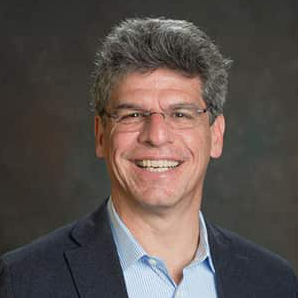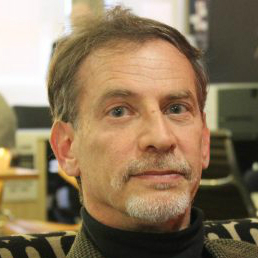Utopia & Dystopia
Explore visions of utopian & dystopian societies in three short novels.
Sundays | Jan. 8, 15, & 22
Online Seminar
“I have merely carried to an extreme in my life what you have not dared to carry even halfway”: so challenges the Underground Man, a nameless, retired civil servant living in St. Petersburg.
Published in 1864, Dostoevsky’s novella portrays a man in physical, mental, and spiritual decline, but passionate in his revolt against modernity: against the hyper-rationalism of the Enlightenment; against the determinism of modern science; and against the utopian visions of socialism.
Jacob Howland on the importance of the humanities
This course meets via Zoom weekly on Sundays, from 4 to 6 PM ET. Fellows will receive a $150 stipend contingent upon participation in the course and completion of a brief response paper. All course materials will be provided.

Jacob Howland has published five books and roughly 60 scholarly articles and review essays on the thought of Plato, Aristotle, Xenophon, Kierkegaard, the Talmud, the Holocaust, ideological tyranny, and other subjects. His most recent book is Glaucon’s Fate: History, Myth, and Character in Plato’s Republic.

Jacob Howland is the former Provost, Senior Vice President for Academic Affairs, and Dean of Intellectual Foundations at the University of Austin. Previously, he was the McFarlin Professor of Philosophy (emeritus) at the University of Tulsa. His research focuses on ancient Greek philosophy, history, epic, and tragedy; the Hebrew Bible and the Talmud; Kierkegaard; and literary and philosophical responses to the Holocaust and Soviet totalitarianism.
His most recent book is Glaucon’s Fate: History, Myth, and Character in Plato’s Republic. His other books include Plato and the Talmud and Kierkegaard and Socrates: A Study in Philosophy and Faith.
He earned a B.A. from Swarthmore College and a Ph.D. from Penn State.
Readings:
Discussion Questions:
Readings:
Discussion Questions:
Readings:
Discussion Questions:

Darren Staloff
Darren Staloff is a retired Professor of History from the City College of New York and the Graduate Center of CUNY. Professor Staloff has published numerous papers and reviews on the subject of early American history.

Jacob Howland
Jacob Howland has published five books and roughly 60 scholarly articles and review essays on the thought of Plato, Aristotle, Xenophon, Kierkegaard, the Talmud, the Holocaust, ideological tyranny, and other subjects. His most recent book is Glaucon’s Fate: History, Myth, and Character in Plato’s Republic.

Flagg Taylor
Flagg Taylor is the Executive Director of the Center for Civics, Culture, & Society, at Miami University. His research specialty is in the history of political thought and American government, especially the question of executive power. He is Chair of the Academic Council of the Victims of Communism Memorial Foundation.

Thomas Merrill
Thomas Merrill is an associate professor in the School of Public Affairs at American University. He is the author of Hume and the Politics of Enlightenment. He is also the co-editor of three edited volumes, including The Political Thought of the Civil War.

Vance Serchuk
Vance Serchuk is Executive Director of the KKR Global Institute and an Adjunct Senior Fellow at the Center for a New American Security. Prior to joining KKR, Mr. Serchuk served for six years as the senior national security advisor to Senator Joseph Lieberman (I-Connecticut).